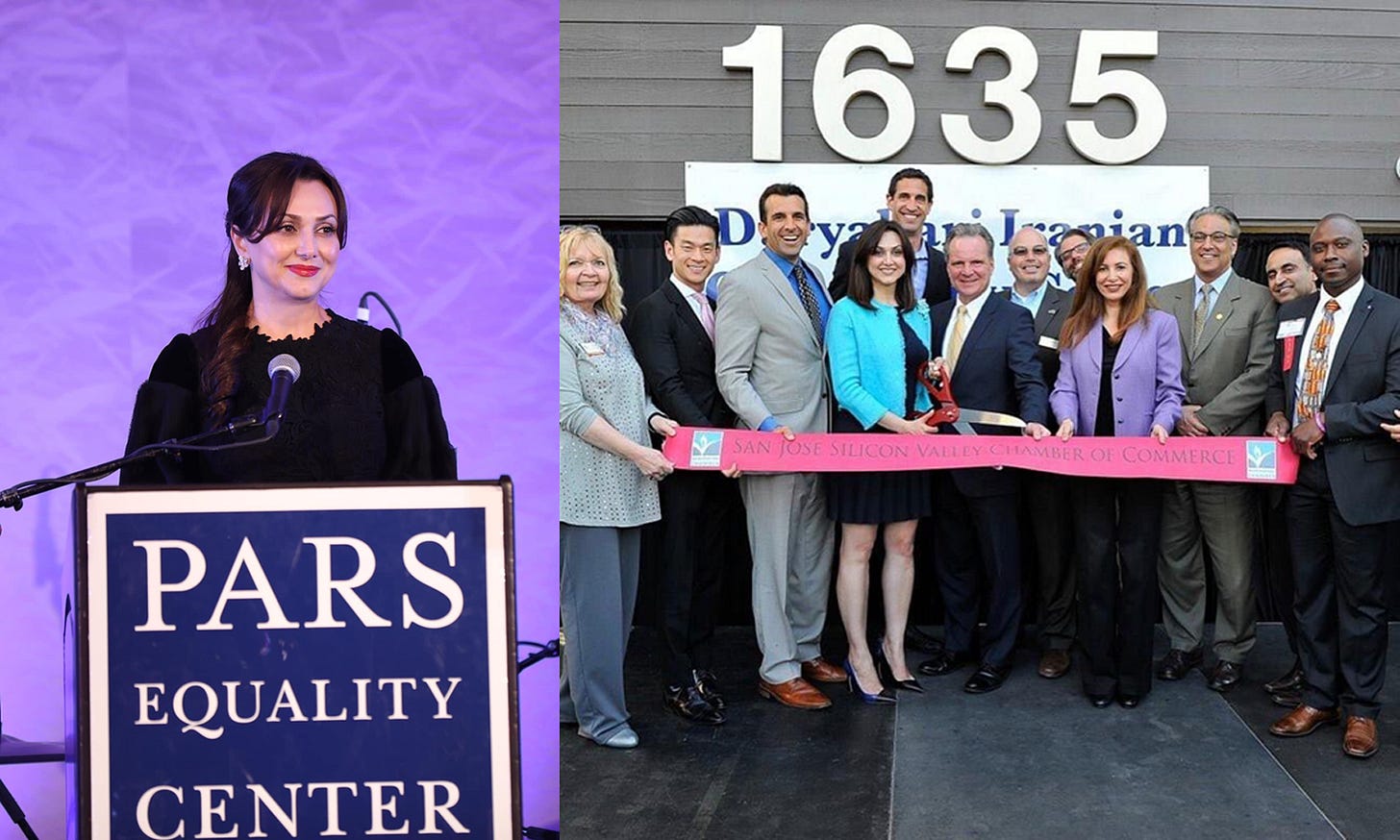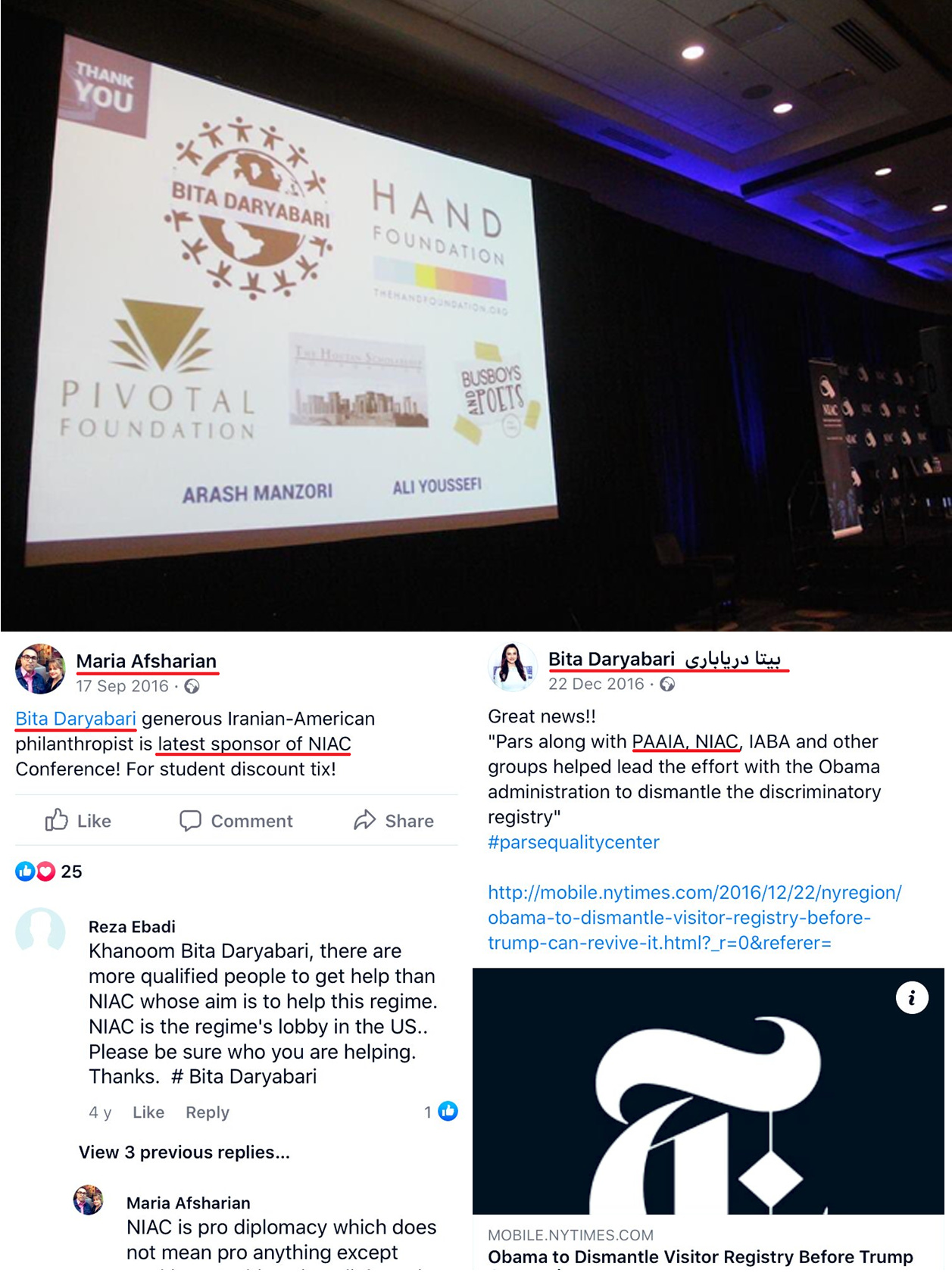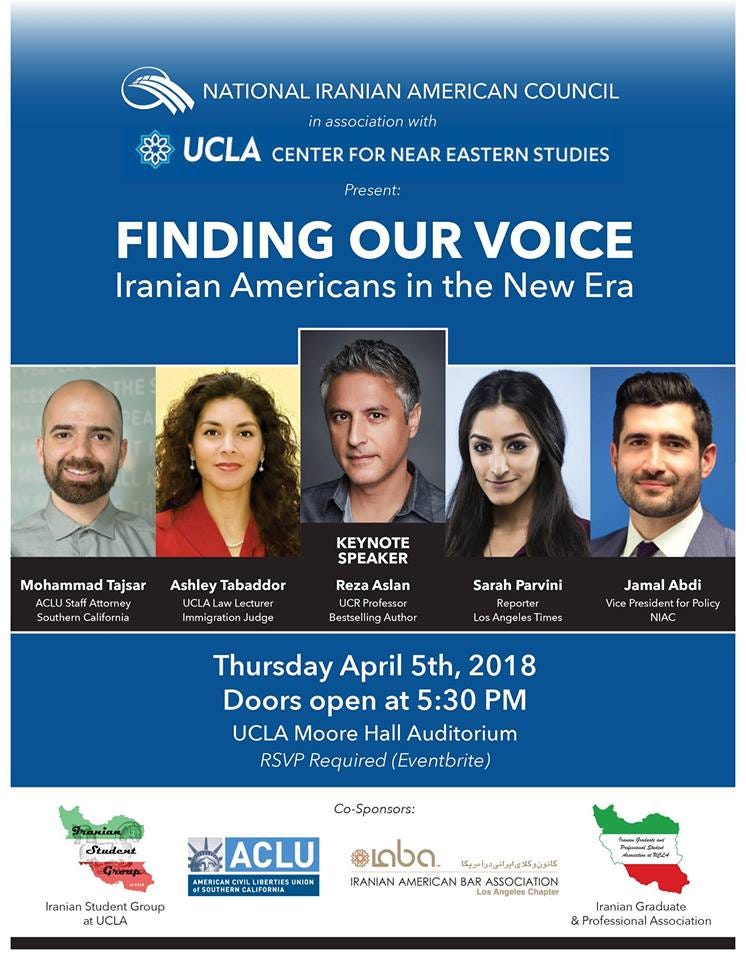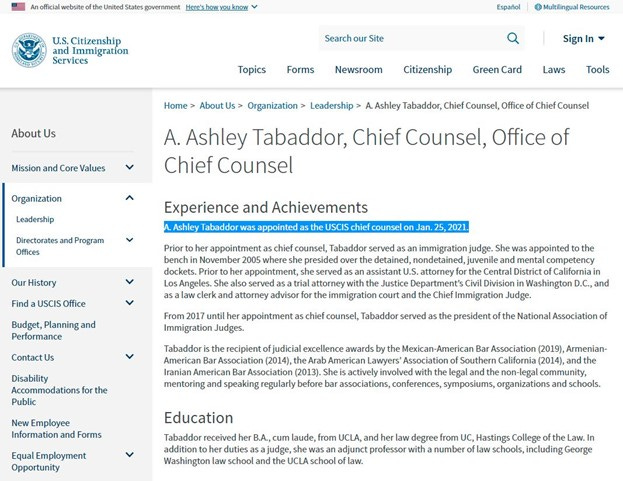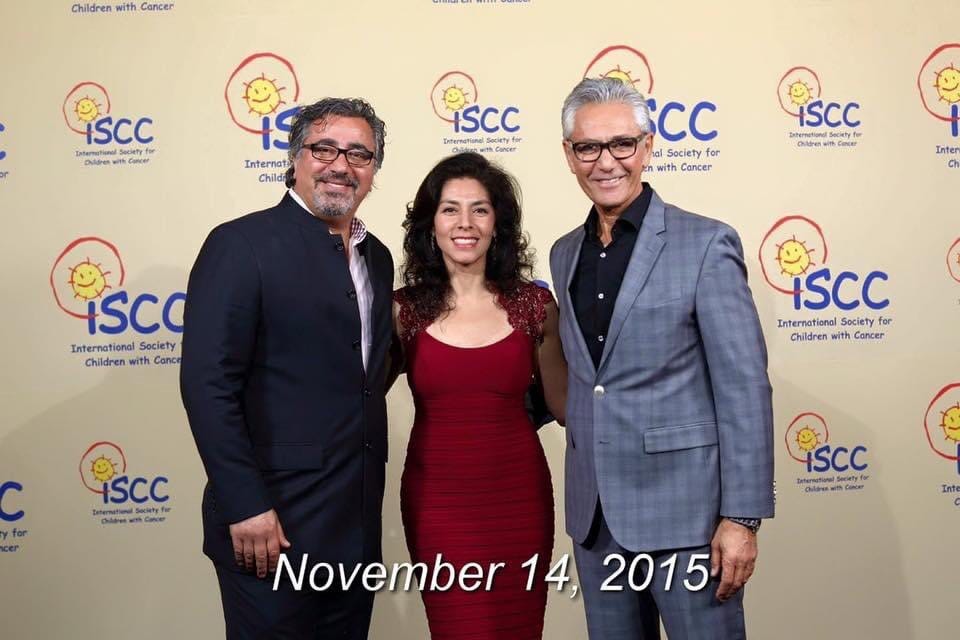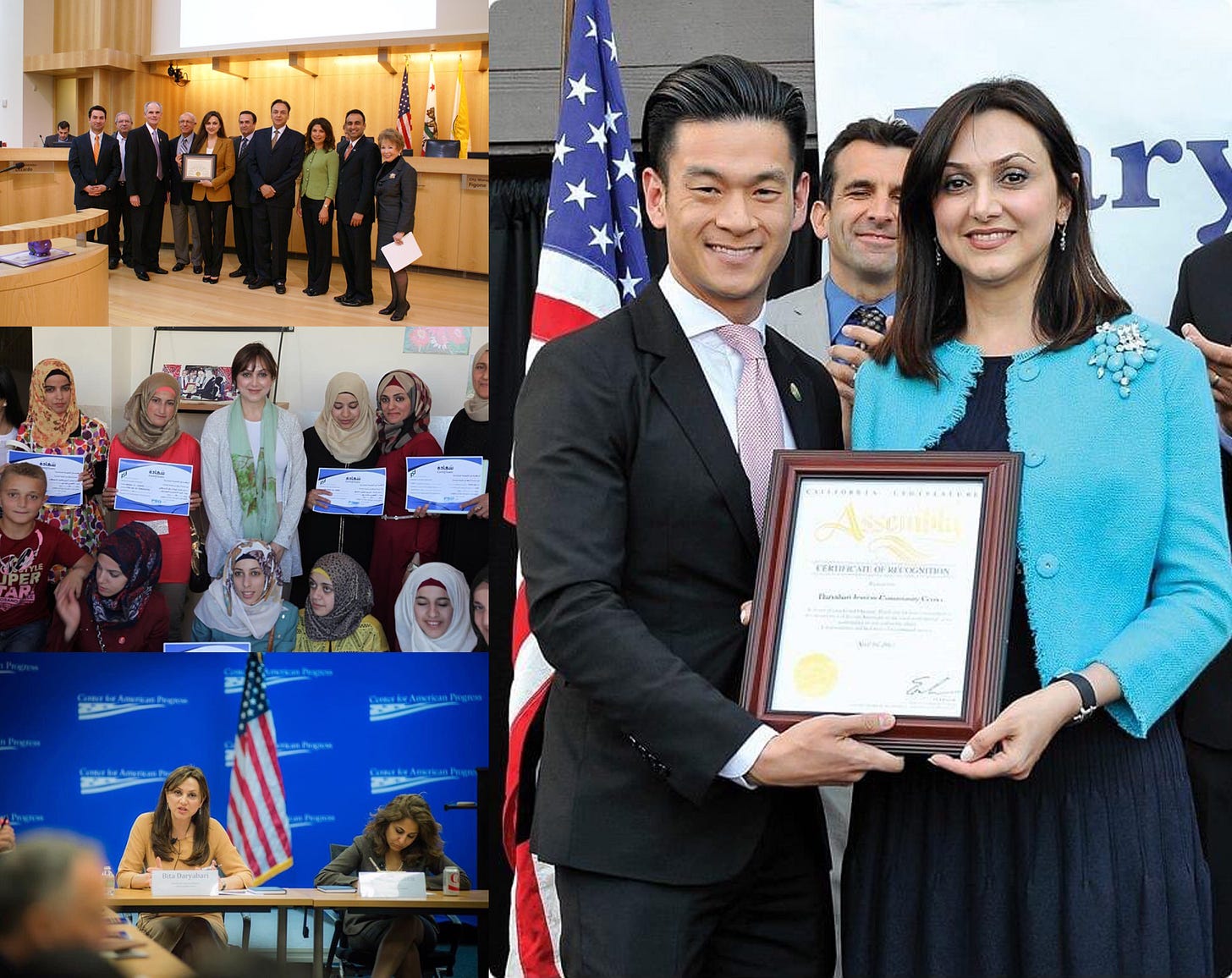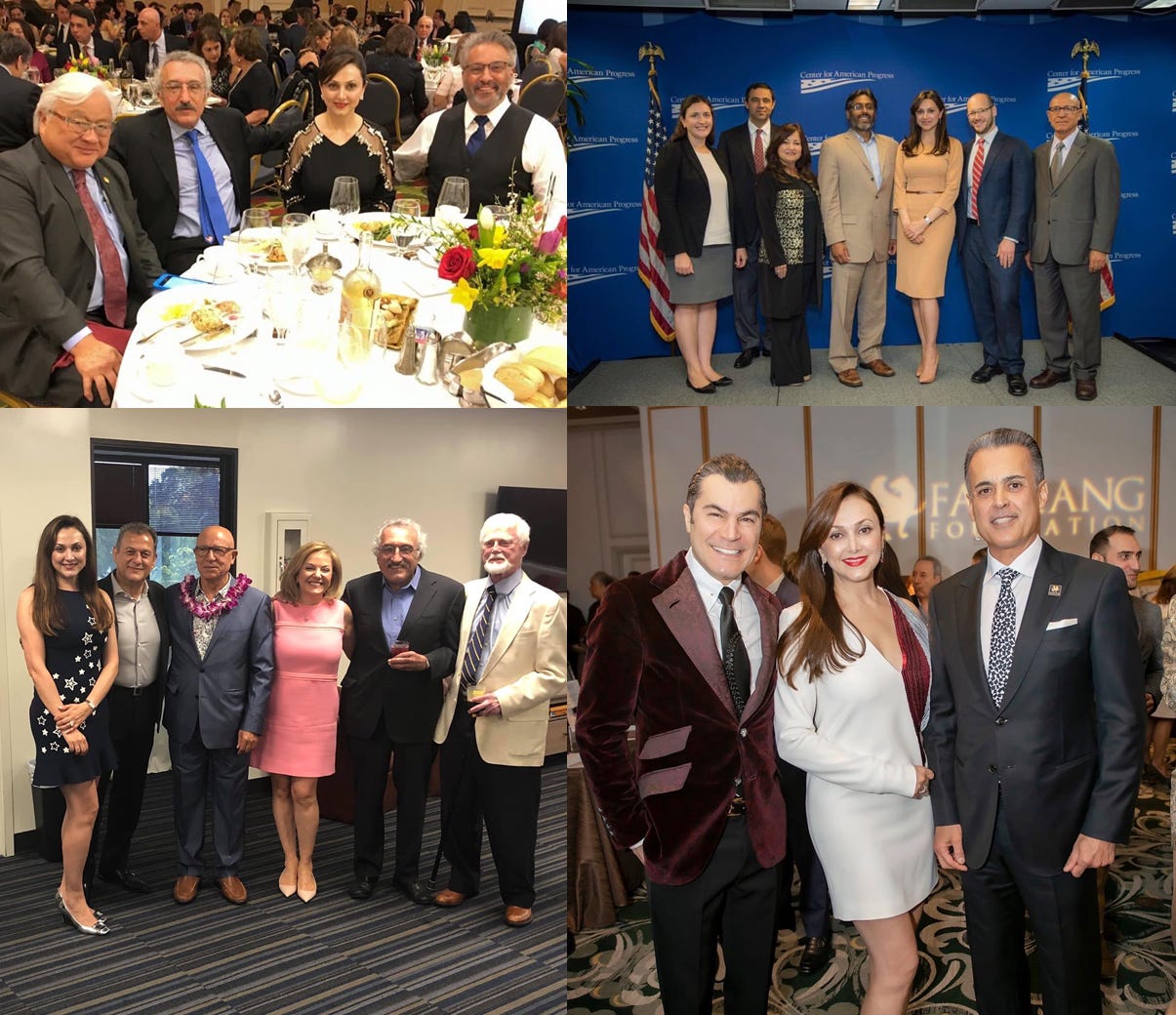Iranian run entities in the U.S. – Pars Equality Center
Bita Daryabari and the Pars Equality Center
Bita Daryabari, born 1969 in Tehran, is the founder of the Pars Equality Center in the United States. She is an Iranian-American philanthropist, entrepreneur and computer scientist.
Daryabari is the founder of several community organizations focusing on Persian immigrants in society and arts in the U.S. Daryabari has provided financial assistance to various educational institutions for research on the Iranian studies in higher education, including endowments to Stanford University, Pembroke College, U.C. Davis, and U.C. Berkeley. She has a named Chair at U.C. Davis in Persian Language and Literature and at U.C. Berkeley in Iranian Studies.
Most importantly, Daryabari is a political, social, legal supporter of the National Iranian American Council (NIAC), the known lobby arm of the Iranian regime in Washington, DC. More interestingly, through the years Daryabari has established ties with now Vice President Kamala Harris and former First Lady Michelle Obama.
Daryabari was formerly married to Omid Kordestani, previously at Google, Executive Chairman of Twitter from October 2015 to June 2020, and now a board member of Twitter. Following their divorce Darybari received a portion of Kordestani’s wealth (estimated to be $1.4 billion in 2009 after the divorce). Some reports indicate Daryabari received up to a billion dollars and this was when Daryabari began establishing her “charity” foundation.
By the way, Kordestani himself has close ties with NIAC. The Washington Free Beacon reported in February 2016 that then Democratic presidential candidate Hillary Clinton was to “participate in a Menlo Park fundraiser on Sunday hosted by Twitter executive Omid Kordestani and his wife Gisel Hiscock, as well as National Iranian American Council (NIAC) board member Lily Sarafan and Noosheen Hashemi, who serves on the board of the pro-Iran advocacy group Ploughshares, a major funder of pro-Iran efforts.” Kordestani’s ties with NIAC and other Iran apologists/lobbyists is another story for another time.
By establishing the Pars Equality Center Daryabari began to gain popularity among the Iranian American community. She claims to have launched this entity to support Iranians and other Farsi-speaking individuals in the U.S. It is reported that she provides millions of dollars each year to Farsi-speaking and Muslim immigrants that enter the U.S.
“Silicon Valley philanthropist and humanitarian Bita Daryabari has made a $1.5 million gift to UC Davis to broaden the university’s Persian studies program,” according to a dailydemocrat.com report from September 2015. “The university is one of only three in the world to receive a gift from Daryabari earmarked for Persian studies. In 2008 she created the Bita Daryabari Endowment in Persian Letters at Stanford University; and, in 2013, she gave a $2 million endowment for the Shahnama Project at Pembroke College in Cambridge, England (a constituent college of the University of Cambridge, England) for further study of the ‘Shahnama,’ or ‘The Book of Kings,’ by Abu’l-Qasim Hasan Firdausi — the emblematic text of Persian historical culture.”
On March 26, 2015, The San Francisco Chronicle shed more light into Daryabari’s vast financial initiatives:
“More than half the [Daryabari Iranian Community Center] $1.9 annual budget is paid for by Daryabari, a computer programmer by training with a master’s in telecom management who rose from middle-class origins to tech wealth during her first marriage, to early Google executive Omid Kordestani. (She married Dr. Reza Malek, a surgeon and medical entrepreneur, in Cabo San Lucas in 2009, in a wedding styled by celeb event planner Colin Cowie, with Julio Iglesias performing.)”
“In 2006, she created the Unique Zan Foundation to improve education, health and job opportunities for women in the Middle East. Through philanthropist Laurene Powell Jobs, she met human rights activist Sakeena Yacoobi, founder of the Afghan Institute of Learning, and partnered in 2007 to build a girls’ school in Kabul. In 2008, she endowed a $2.5 million Persian studies chair at Stanford University.”
Stanford University is no coincidence. In October 2020, the Iran News Update website reported: “A group known as the Iranian regime’s most effective lobby in the United States has quietly gained a foothold at Stanford University, and one of its senior officials has just gained a seat on the prestigious academic institution’s governing board.
“The National Iranian American Council (NIAC) lobbies for a lenient approach to Iran’s regime, which includes ending the United Nations arms embargo on Tehran. It condemned the U.S. administration for designating the regime’s Revolutionary Guards (IRGC) as a terrorist group and for eliminating IRGC Quds Force chief Qassem Soleimani in an airstrike. The U.S. District Court for the District of Columbia in 2012 found that NIAC and its president Trita Parsi were ‘first and foremost an advocate for the regime.’
“Stanford announced on its website on July 13, 2020, that from October 1, Lily Sarafan would begin a six-year term on the university’s Board of Trustees.”
The Pars Equality Center is a non-profit entity that supports Iranian immigrants that intend to migrate to the U.S. In previous years, with the center gaining more influence, the support expanded to non-Iranian Muslims who have successfully migrated to the U.S.
The presence of Touraj Daryaee, a supporter and senior advisor of NIAC and seen in the image provided talking to NIAC founder Trita Parsi, next to Daryabari is quite telling.
This is where NIAC more seriously gets involved. Daryabari began her collaboration with NIAC back in 2015. Darybari and her foundations were named as NIAC’s financial supporters in all of the latter’s seminars and press meetings. Daryabari was constantly introduced as one of the largest charity donors to NIAC. There were also references made to other Iranian lobby groups in the U.S., including the Public Affairs Alliance of Iranian Americans (PAAIA).
One of NIAC’s main objectives is hiring new recruits and increasing their votes among city council members and, on a larger scale, state representatives. One of the main methods to realize this goal is having more immigrants enter the U.S. from Iran and Muslim countries in the Middle East. The main priority of Daryabari’s Pars Equality Center is resolving immigration issues and facilitating visas.
Talking about immigration, Bita Daryabari also has ties with Afsaneh Ashley Tabaddor, an Iranian-American judge “who is active in various Muslim, Iranian, Middle Eastern, and women’s communities, has worked at the U.S. Department of Justice (DOJ)’s Executive Office of Immigration Review since 2005.” Furthermore, Tabaddor considers judging over cases involving Iranian nationals so important that she sued the U.S. Department of Justice on this topic back in 2014.
It is worth noting that NIAC is quite fond of Tabaddor, too.
More importantly for NIAC and Iran’s immigration efforts into the U.S., on January 21, 2012, Tabaddor was appointed by the Biden administration as chief counsel at the U.S. Citizenship and Immigration Services, an agency of the U.S. Department of Homeland Security.
Furthermore, Tabaddor also has ties with the “International Society for Children with Cancer,” an Iranian-run so-called “charity” in the U.S. that is not very transparent, to say the least, and has telling relations with Iran’s lobby arm in the U.S., being specifically NIAC.
Moving on, the direct collaboration between the Pars Equality Center and a number of other entities is quite vivid. Such cases include PAAIA and the Iranian American Bar Association in the U.S. NIAC itself welcomed the launch of PAAIA as the “first Iranian-American lobby” entity.
In 2017, with Donald Trump entering the White House, he ordered a ban on visas for Iranians seeking to enter the U.S. Using her popularity among the Iranian community, Daryabari responded by coming to the support of NIAC founder Trita Parsi to file complaints against Trump’s executive orders. Their initiative never bore fruit.
One of the main blows to NIAC and the Iranian regime was the ban on Iranians entering the U.S. (no visa ban). NIAC literally lost its flow of new recruits from Iran to the U.S.
It is worth noting that back in July 2018, Fox News reported citing an Iranian official that the Obama administration granted citizenship to 2,500 Iranians during the nuclear deal. “When Obama, during the negotiations about the JCPOA, decided to do a favor to these men, he granted citizenship to 2,500 Iranians and some officials started a competition over whose children could be part of these 2,500 Iranians,” said Hojjat al-Islam Mojtaba Zolnour, then chairman of the regime’s parliamentary nuclear committee and a member of its national security and foreign affairs committee.
With the enormous wealth she had obtained, Daryabari was active in helping “immigrants” (reportedly sent specifically by Tehran) with the best lawyers acquainted to the Pars Equality Center to facilitate all the procedures necessary for visas issues, requesting refugee status, receiving residency, and eventually citizenship.
It is also worth noting that through the years Daryabari has established ties to senior U.S. officials.
Again using her wealth Daryabari began getting involved in politics. Using charities, she started providing hundreds of thousands of dollars to important American figures. Her close relationship with Abbas Milani, a very careful and experienced Iran apologist, is no coincidence. This, too, is another story for another day.
It is worth noting that financial transactions made by charity groups are exempt from taxes in the U.S. This is exactly why figures such as Bill Gates and other billionaires are quite active in charity organizations.
The advice provided by Trita Parsi and NIAC to Daryabari resulted in her being involved in America’s universities. Stanford University has the “Bita Prize for Persian Arts,” making Daryabari more popular among this university and allowing her to influence the youth.
As mentioned before, we cannot simply assume all these ties are mere coincidences. Connecting the dots provide us circumstantial evidence that lead to important questions that deserve answering. Refusing to answer such questions will raise even more suspicions about the nature of those who wish to keep such issues in the shadows.
1) What is the relationship between Iranian run “charity” entities with Iran’s DC-based lobby groups NIAC, PAAIA, and others?
2) Why are these “charity” entities not practicing transparent policies? Where is all their money going to?
3) Why do these “charities” and Iran’s lobby groups only establish ties with a certain circle of American politicians? If they truly seek the better good of the Iranian people and Iranian Americans, why not seek bipartisan support in Washington?





